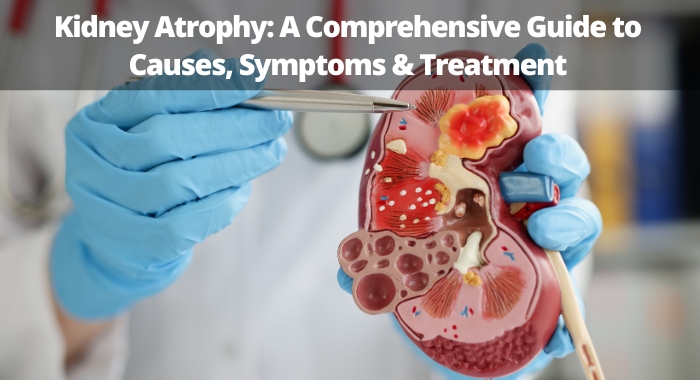Ambien (zolpidem) is a widely prescribed medication used to treat insomnia, a condition affecting millions of people worldwide. Alcohol, a common depressant, is frequently consumed for relaxation and socialization. However, when these two substances are taken together, the effects can be dangerous and unpredictable. This article delves into the health consequences of mixing Ambien and alcohol, explaining why this combination is particularly hazardous and exploring the potential physical, cognitive, and psychological impacts.
Understanding Ambien and Its Mechanism
Ambien belongs to a class of drugs called sedative-hypnotics, which are primarily prescribed to help individuals fall asleep faster and stay asleep through the night. It works by enhancing the activity of gamma-aminobutyric acid (GABA), a neurotransmitter that calms the brain, resulting in sedation and relaxation. Although it is effective for short-term treatment of insomnia, Ambien comes with warnings regarding its potential for dependence, misuse, and interactions with other substances.
The main concern with Ambien is its sedative effect, which can slow down brain activity and impair essential functions such as coordination, memory, and judgment. When taken as directed, Ambien is generally safe for short-term use, but its interaction with alcohol can exacerbate these effects, leading to serious health risks.
Alcohol and Its Depressant Effects
Alcohol is one of the most widely consumed substances globally, often associated with social gatherings and relaxation. It also acts on the central nervous system (CNS), specifically by enhancing the effects of GABA and inhibiting glutamate, another neurotransmitter. This dual action slows down brain function, leading to relaxation, decreased anxiety, and impaired motor skills.
When consumed in moderation, alcohol may not pose an immediate danger for most people. However, its depressant effects can increase when combined with other substances like Ambien, resulting in heightened sedation and potential harm to vital systems.
The Risks of Mixing Ambien and Alcohol
When Ambien and alcohol are used together, the combined depressant effects on the central nervous system can lead to a range of negative outcomes. Both substances work by slowing down brain activity, and their simultaneous use can amplify their sedative properties, which may cause dangerous or life-threatening effects.
Increased Sedation and Drowsiness
One of the most immediate and concerning consequences of mixing Ambien and alcohol is excessive sedation. Both substances induce sleepiness, but when combined, the sedative effect becomes more pronounced. This can lead to profound drowsiness, making it difficult for individuals to stay awake or function normally. The heightened sedation also increases the risk of accidents, falls, and injuries, especially if someone attempts to drive or engage in other activities that require alertness.
Cognitive Impairment and Memory Loss
Ambien is known for its potential to cause short-term memory loss or “blackouts,” where individuals may perform actions without any recollection of them later. Alcohol, too, impairs memory and cognitive function. When the two are combined, the risk of experiencing amnesia increases significantly. Individuals may engage in activities such as sleepwalking, cooking, or even driving while under the influence of both substances, with no memory of their actions. This cognitive impairment is not only dangerous but can also result in legal and personal consequences.
Respiratory Depression
Both Ambien and alcohol can depress the respiratory system, meaning they slow down breathing. When taken together, this effect is compounded, increasing the risk of respiratory depression or even respiratory failure. This is especially concerning for individuals who already have underlying respiratory issues, such as sleep apnea, asthma, or chronic obstructive pulmonary disease (COPD). In severe cases, the slowed breathing caused by mixing these substances can result in unconsciousness, coma, or death.
Increased Risk of Overdose
Taking Ambien and alcohol together also heightens the risk of overdose. Even when taken in prescribed doses, Ambien’s effects can be dangerous when combined with alcohol. The CNS depression caused by both substances can lead to a situation where the body’s vital systems, such as heart rate and breathing, are suppressed to the point of failure. Signs of overdose include extreme drowsiness, difficulty breathing, confusion, and loss of consciousness. Immediate medical attention is required if an overdose is suspected, as it can be fatal if untreated.
Psychological Effects and Mental Health Concerns
The combination of Ambien and alcohol not only affects the body but also has significant psychological impacts. Both substances can impair judgment, increase impulsivity, and reduce inhibitions, which can lead to risky or irrational behavior. Additionally, prolonged use of Ambien and alcohol together can exacerbate mental health conditions such as depression and anxiety.
Mood Swings and Emotional Instability
Both Ambien and alcohol have been linked to mood changes, and their combination can intensify these effects. Individuals may experience sudden mood swings, irritability, or feelings of depression. This emotional instability can strain personal relationships, affect work performance, and contribute to a sense of isolation or hopelessness. Moreover, the inability to remember actions or conversations due to memory loss may lead to confusion, frustration, and shame.
Increased Risk of Dependence and Addiction
Another critical concern is the potential for dependence on both Ambien and alcohol. Since both substances can produce a calming or euphoric effect, individuals may become reliant on their combined use to alleviate stress, anxiety, or sleep difficulties. Over time, this can lead to tolerance, where larger amounts of both substances are needed to achieve the same effect, increasing the risk of overdose and long-term health consequences. Dependence on both Ambien and alcohol can be difficult to break, often requiring professional medical intervention and treatment.
Long-Term Health Consequences
The long-term consequences of mixing Ambien and alcohol extend beyond immediate risks like overdose or accidents. Regular use of this combination can cause lasting damage to the brain, liver, and heart.
Cognitive Decline
Chronic use of Ambien and alcohol can contribute to long-term cognitive decline. The brain’s ability to process information, form memories, and make decisions can be severely impaired, even after discontinuing use. This cognitive damage may persist, affecting an individual’s quality of life and ability to function independently.
Liver Damage
The liver plays a crucial role in metabolizing both alcohol and medications like Ambien. When both substances are used together, the liver becomes overburdened, leading to potential damage over time. Chronic alcohol use is already known to cause liver disease, and the addition of Ambien can accelerate this process, increasing the risk of liver failure or cirrhosis.
Cardiovascular Strain
Both Ambien and alcohol can place strain on the cardiovascular system, particularly by slowing the heart rate and reducing blood pressure. Over time, this can lead to long-term damage to the heart and circulatory system, increasing the risk of heart disease or stroke.
Conclusion
Mixing Ambien and alcohol is a dangerous practice that poses serious health risks, both in the short and long term. The combined sedative effects of these substances can lead to increased sedation, cognitive impairment, respiratory depression, and a higher risk of overdose. Additionally, the psychological and emotional consequences of using these substances together can result in mood instability, memory loss, and potential addiction. For individuals struggling with insomnia or alcohol use, it is crucial to seek medical advice before using either substance, and especially to avoid using them together. Understanding the risks associated with combining Ambien and alcohol is the first step toward safeguarding one’s health and well-being.

















